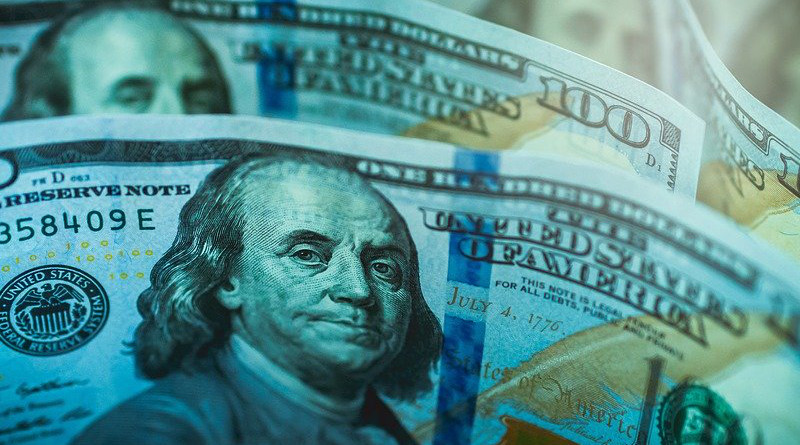Sanctions Force Nations To Look For Alternatives To US Dollar – Analysis
They also weaken two main pillars of American power
The United States appears to be very pleased with the economic damage that it has been inflicting on Russia following the latter’s invasion of Ukraine. But the US is blind to the damage that sanctions are inflicting on the very systems that it had put in place after World War II to extend and buttress its power over the globe, economists warn.
Globalization and the dominance of the US dollar that ensured Western prosperity and Western global power in the last 76 years, could be weakened or even destroyed by the sanctions US applies on other countries. In course of time, a less hegemonic alternative to the US-led financial system worked out by less powerful countries, might replace the existing system.
According to the website The Cradle, Russian economist and member of the National Financial Council of the Bank of Russia, Sergey Glazyev, has proposed a new global financial system which is underpinned by digital currency and backed by a basket of new foreign currencies and natural resources of the member countries. It will liberate the Global South from both Western debt and IMF-induced austerity, Glazyev says in an interview.
Weapons of Mass Destruction
Writing for Project Syndicate Indian economist Raghuram Rajan described the US sanctions as “weapons of mass destruction.” They destroy firms, financial institutions, livelihoods, and even lives. And if used too widely, they could reverse the process of globalization that has allowed the modern world to prosper, Rajan warned. Given the way the US and the West seized the assets of other countries or froze them, India, China and many other countries may worry about their foreign-exchange holdings in powerful countries, he said. Countries may also limit where their banks can operate in order to reduce their vulnerability to such threats, the economist points out. Political and not economic considerations will dictate decisions on overseas investments.
When sanctions become an instrument of power, many countries will tend to use it thereby making a mockery of global economic integration.
De-dollarization
According to the website www.longfinance.net there is a growing awareness that the US dollar has enormous power to infect the global economy with US inflation and the impact of US interest rate rises, “both of which are managed primarily for US domestic purposes.” Economist Rajan warned that countries might start exploring alternatives to the dollar and the SWIFT financial messaging network, leading to a “fragmentation of the global payments system.”
Tom O’Connor wrote in Newsweek, long before the Ukraine crisis, that sanctions were degrading America’s most influential tool in international affairs, the power of USD. “US dollar debasement is the ultimate outcome as dollar weaponized in new era of sanctions,” Bank of America analysts led by Michael Hartnett noted in a report.
And according to Benn Steil, Director of International Economics at the Council on Foreign Relations, alternatives to the dollar are “multiplying and improving.” China and Russia, and even Western partners like Turkey and India, are wanting to trade in their respective national currencies when it suits their interests, Steil pointed out. China has an ambitious digital currency project to help countries bypass the US-dominated global banking system, he said.
The New Development Bank established by BRICS (comprising Brazil, Russia, India, China, South Africa); the China-based Asian Infrastructure Investment Bank, the Shanghai Cooperation Organization (SCO) and the Russia-led Eurasian Economic Union (EEU), could devise their own financial and payment system.
The website www.longfinance.net says that the process of “de-dollarization” gained great momentum with the onset of the trade war between the US and China. The Trump Administration used sanctions against allied nations to protect the US economy, as well as a bargaining chip in trade negotiations.
In 2013, Australia and China agreed to trade in national currencies. In the same year, Brazil and China agreed to trade in the Brazilian and Chinese currencies. Since 2011, China has entered into agreements with Australia, Russia, Japan, Brazil, and Iran to trade in national currencies. In the first quarter of 2020, the share of USD in the bilateral trade between China and Russia fell below 50%. In 2015, China had launched the CIPS (Cross-Border Interbank Payment System) for cross-border Renminbi payments and trade as an alternative to SWIFT.
Since the end of 2019, the EU established the “Instrument in Support of Trade Exchanges (INSTEX)” a Special-Purpose Vehicle (SPV) to facilitate non-USD and non-SWIFT transactions with Iran to bypass US sanctions. On 31 March 2020, the first Iran-EU INSTEX transaction was concluded to cover Iran’s import of medical equipment to combat COVID-19. Since March 2018, China started buying oil in gold-backed Yuan.
China’s current de-dollarization effort includes the development of a digital currency. “This initiative is intended to develop a domestic payment system that could be used globally. The initiative advances China’s efforts to create alternatives to US-controlled global economic, financial, trade, and technology networks.”
India and Russia are to conduct arms trade in Roubles and Rupees to circumvent US sanctions on Russia.
Long Haul
Be that as it may, as longfinance.net points out, the dollar would still rule the world for the foreseeable future. China itself has huge dollar reserves and the RMB is still a minor player in the global marketplace though China is the second-largest economy in the world.
However, over time, if sanctions continue to be applied recklessly, de-dollarization will gain traction, with grave implications for US global economic leadership, longfinance.net warns.

